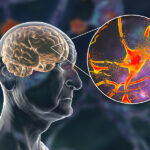By David Blyweiss, M.D., Advanced Natural Wellness
July 6, 2015
- Unusual way to predict Alzheimer’s risk
- Cut your chances of mental decline with early detection
- The best prescription for long-term memory
There currently isn’t any medical test that can detect Alzheimer’s disease.
However, there have been some breakthroughs in Alzheimer’s research that are revealing an unusual early predictor of the disease.
You may have heard about the peanut butter test. Awhile back, researchers discovered people in the early stages of Alzheimer’s disease have a hard time smelling peanut butter when it’s held a short distance from their left nostril.
Today we’re learning peanut butter might not be the only odor that’s hard for Alzheimer’s patients to smell.
In a new bit of research, a group of 215 elderly patients were given a sniff test. It involved a total of 40 odors.
Guess what happened?
The folks who had the worst ability to detect the odors had reduced volume of the hippocampus. This part of the brain plays an important role in consolidating short-term memories into long-term memories. They also had a greater burden of amyloid plaque. Additionally, their entorhinal cortex – which plays a role in memory formation and consolidation – was thinner.
Does this mean you have Alzheimer’s if you have a poor sense of smell?
Not necessarily.
However, a trip to the neurologist for memory testing might be in order. The earlier you’re diagnosed, the better off your outcome will be.
Now, we don’t yet have a cure for Alzheimer’s. There’s no drug you can take to ward it off. But there are several things you can do to reduce your risk…and even improve symptoms in the early stages of dementia and Alzheimer’s.
The World's Quickest Solution for Ending Prostate and Urinary Misery
This has recently been revealed to be one of the only real breakthroughs in prostate health.
The seeds of a strange fruit (sometimes called "Chinese Apples") hold powerful phytonutrients that are a revolution in prostate health.
In fact, UCLA and Veterans Administration research have now proved this to be true.
Not only that, but it may be the worlds quickest solution for ending prostate misery.
Simply stated, these phytonutrients represent a huge step beyond beta sitosterol, saw palmetto, and other phytosterols alone.
Simply click HERE if you want to have fast prostate relief...restful, uninterrupted sleep...no more constant "urges to go"...enhanced virility...and optimal prostate support for life.
What do I recommend? Engage in regularly physical activity. It can cut your risk of Alzheimer’s by almost 40%. Even if you start exercising later in life, it can reduce the odds of mental decline by about a third.
Among other things, exercise encourages the growth of new neurons and decreases the buildup of amyloid plaques. It increases the size of your brain’s hippocampal area and reduces white matter lesions, one of the earliest detectable brain changes in Alzheimer’s disease.
If you had a pill that did all that, you’d probably take it.
And you’d probably spend a lot of money for it. So there’s really no excuse not to move your body more frequently. It’s probably the single most important thing you can do for your long-term mental health. And, it doesn’t even have to be anything strenuous.
To start with, I recommend walking for 30 minutes, twice a day. Toss in a couple of short bursts of intensity for good measure and your brain will be all the happier for it.
Resources:
UF researchers find that ‘peanut butter’ test can help diagnose Alzheimer’s disease. News Release. University of Florida. Oct 2013.
Growdon ME, et al. Odor identification and Alzheimer disease biomarkers in clinically normal elderly. Neurology. 2015 May 26;84(21):2153-60.
Geda YE, et al. Physical exercise, aging, and mild cognitive impairment: a population-based study. Arch Neurol. 2010 Jan;67(1):80-6.
Head D, et al. Exercise Engagement as a Moderator of the Effects of APOE Genotype on Amyloid Deposition. Arch Neurol. 2012 Jan 9.






